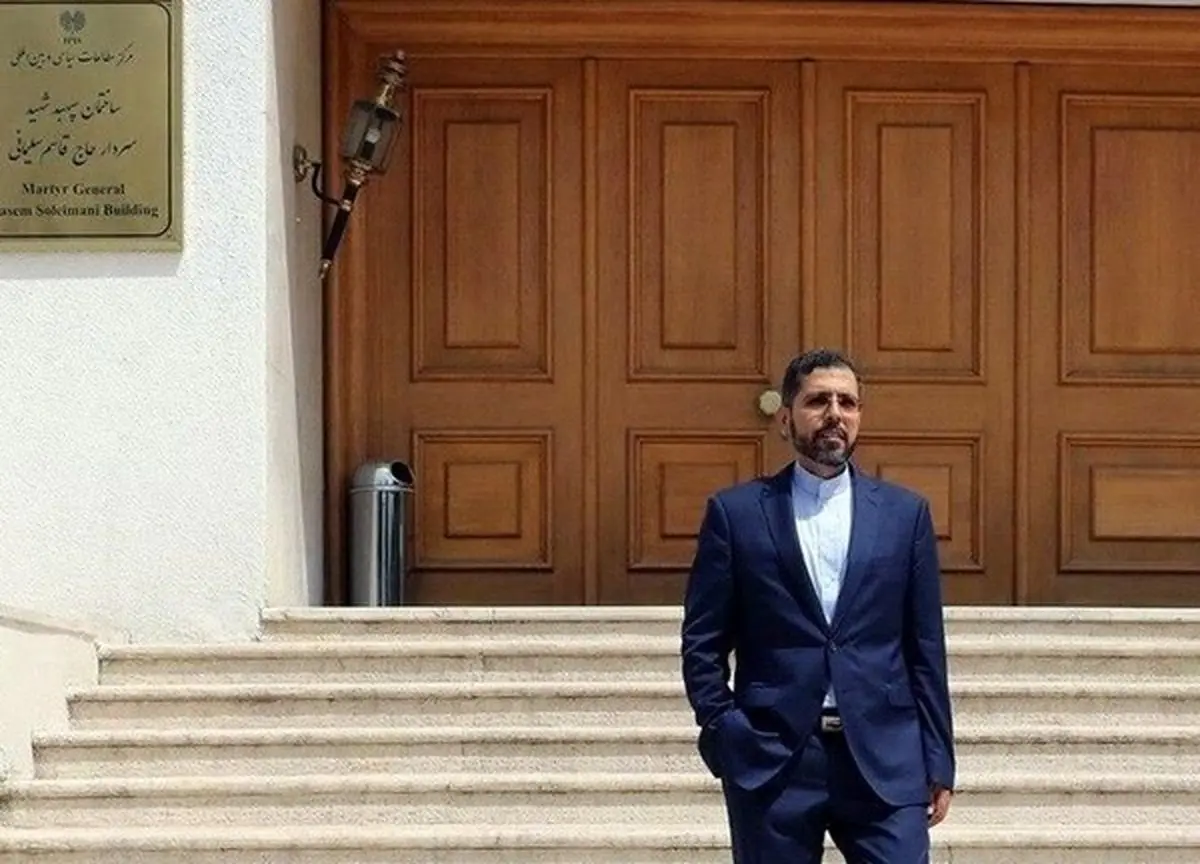Iran and Saudi Arabia have retained constant contacts

The spokesman for Iran's Ministry of Foreign Affairs Saeed Khatibzadeh said the recent talks between Iran-IEAE talks came in continuation of previous ones and stressed that Iran has already provided detailed and inclusive answers to the nuclear watchdog body so that the IAEA could sump up them in its reports.
He made the remarks in a conversation with a group of foreign journalists from the Arab world and Western countries in the "Club House".
During the conversation he outlined Ira's stances on a number of critical issues.
Asked to comment on some non-official news about a Tehran-Riyadh dialogue in Iraq, Khatibzadeh explained that the report was first published in the Financial Times and stressed that Iran generally welcomes any initiative to reduce tensions and increase cooperation in the region, and thus it is certainly looking for some kind of dialogue and communication with its neighbors.
He reviewed the recent history of Iran-Saudi Arabia relations and pointed to the efforts by some regional and ultra-regional countries, including Iraq, Kuwait, Pakistan, China and Germany to trigger dialogue between Tehran and Riyadh.
He said there have been cases of direct and indirect communications between the two countries.
To another question whether Iran and Saudi Arabia have moved towards reducing tensions during the post-Trump era, he said that Iran has always made efforts to reduce tensions, so there have been "positive signs" recently.
He said it is no secret that there are significant difficulties in this and serious differences exist between the two countries on some regional and bilateral issues. However, he said , Iran thinks it is in the interest of both countries, as well as regional stability and peace, to find a way to resolve the differences.
Welcoming Iraq as a country with all parties in the region to play a role in reducing tensions in the region, he said: "There have been interactions between Iran and the countries in the region, however, it remains to be seen what the regional arrangements will be." The real is taking shape, it's early.
Asked about the prospects of nuclear talks in Vienna, the spokesman described them as "promising" and said that progress has been made and all sides have shown "serious political will" to reach a conclusion.
He said the talks were conducted in a "relatively constructive" atmosphere.
The diplomat noted that there is some disagreement on significant issues, like lifting of all sanctions and the fact-finding procedures but parties involved in the talks have shown sufficient will to make progress."
He stressed that the Joint Comprehensive Plan of Action (JCPOA) has been negotiated only for one time and the current talks are focusing just on its text.
Khatibzadeh described the current meeting in Vienna as a technical dialogue between Iran and the remaining members of the Security Council (P5 + 1) on how the United States fully adheres to Security Council Resolution 2231. Rather, what has been discussed is how the United States has fully adhered to the IAEA, how it has verified, and then reversed Iran's retaliatory measures for Washington's gross violation of the IAEA.
Removal of sanctions should be real, not just on paper
He went on to underline that verification of the actions of the JCPOA parties is easy and very simple. The International Atomic Energy Agency (IAEA) is the reference for verification so it would be an easy task to examine Iran's sincerity, while it is difficult to verify the actions of the United States and other parties to the UN Security Council.
Just as the IAEA accepts Iran's declarations on paper alone and emphasizes the truth of face-to-face and physical testing, Iran does not want the sanctions to be lifted solely on paper and therefore wants to verify the lifting of sanctions in practice, especially those imposed on its financial transactions, banking, oil sales, insurance, transportation, and everything else related to the US obligations.
The New York Times reporter asked about the timing and arrangements for the US return to the JCPOA obligations. Khatibzadeh said that it is necessary to reach an agreement between Iran and the P5 + 1 on the one hand and the P5 + 1 and the United States on the other hand to plan future actions.
He added that sequencing means practical measures and arrangements for lifting sanctions. Iran says the US must fulfill its obligations in the agreed manner with Iran verifying them.
As for the Iran-IAEA agreement which expires in May, Khatibzadeh said that Iran is in no hurry to negotiate, but at the same time does not want lengthy and erosive talks.
There is now a window of opportunity between Iran and the IAEA that has a clear timetable, he said.
In an answer to another question about the possible impact of upcoming presidential elections in Iran on the JCPOA talks, he stated that, foreign policy in Iran is principally a non-partisan issue. He noted that Iran's unchanging positions on the nuclear issue stems precisely from the fact that it builds policies on the basis of national interests defined by an expert group of senior officials gathered in the Supreme National Security Council.
As such, he continued, the nuclear issue or any other topic related to the country's national security will not affected by change of governments.
Referring to the destructive role of some countries in the region over the past few years in concluding the JCPOA agreement, as well as regional developments, he said they did not favour a strong and independent Iran.
Regarding Russia's claim of a nuclear umbrella, Khatibzadeh said gaining independence from world powers and reliance on its own power is one of the most important achievements of the Islamic Revolution so Iran has no need for any country's nuclear umbrella because Iran's use of its nuclear program is purely for peaceful purposes without any militarism.
END
